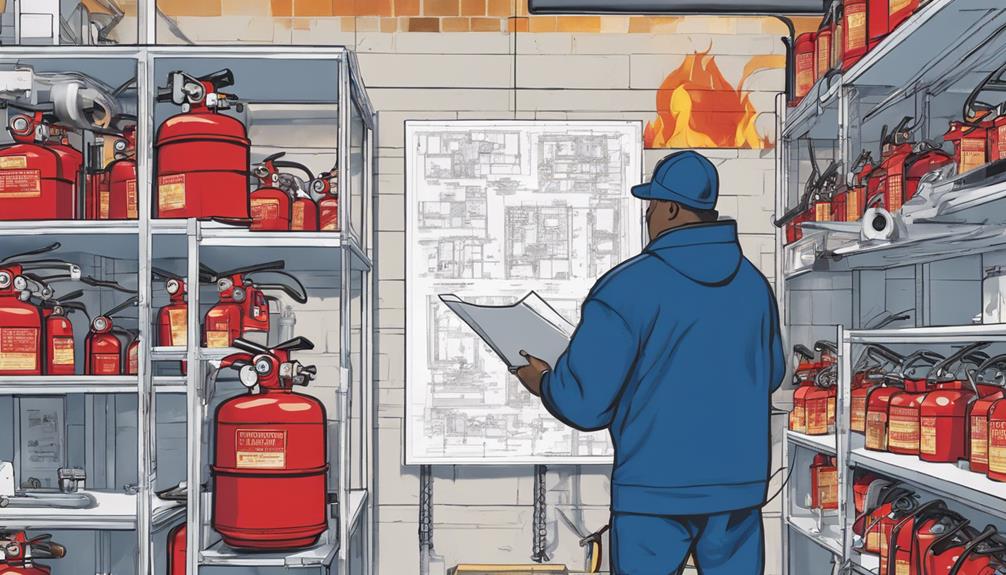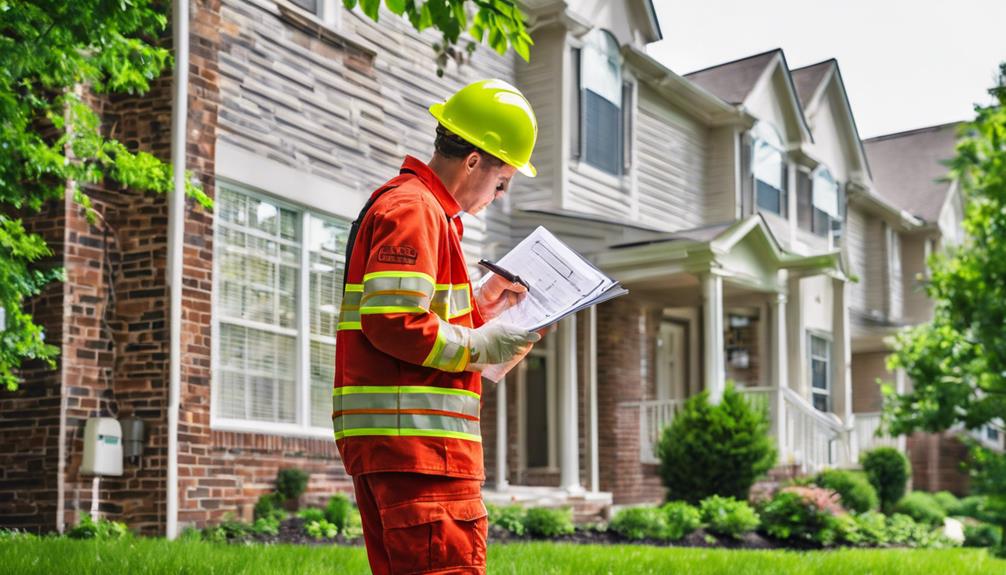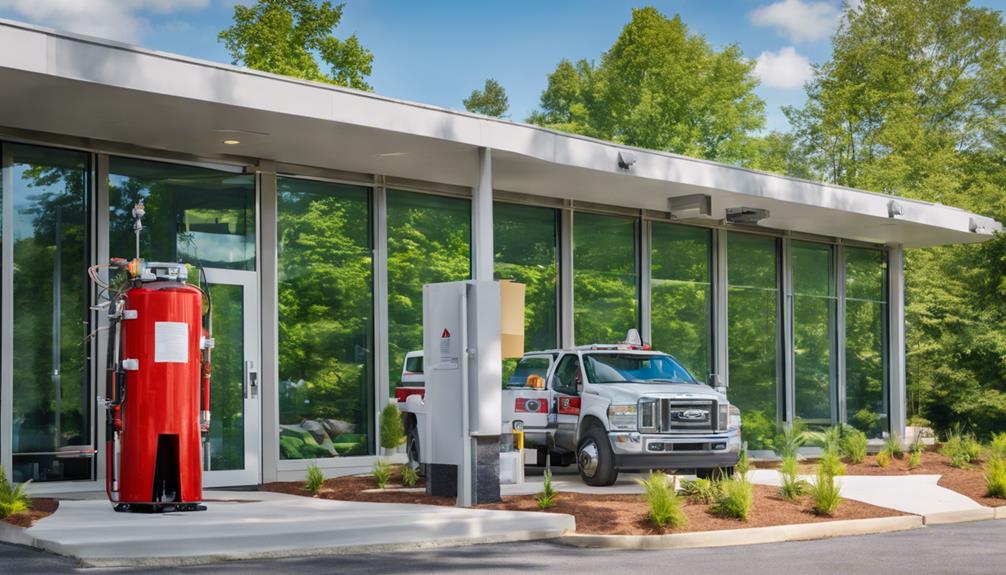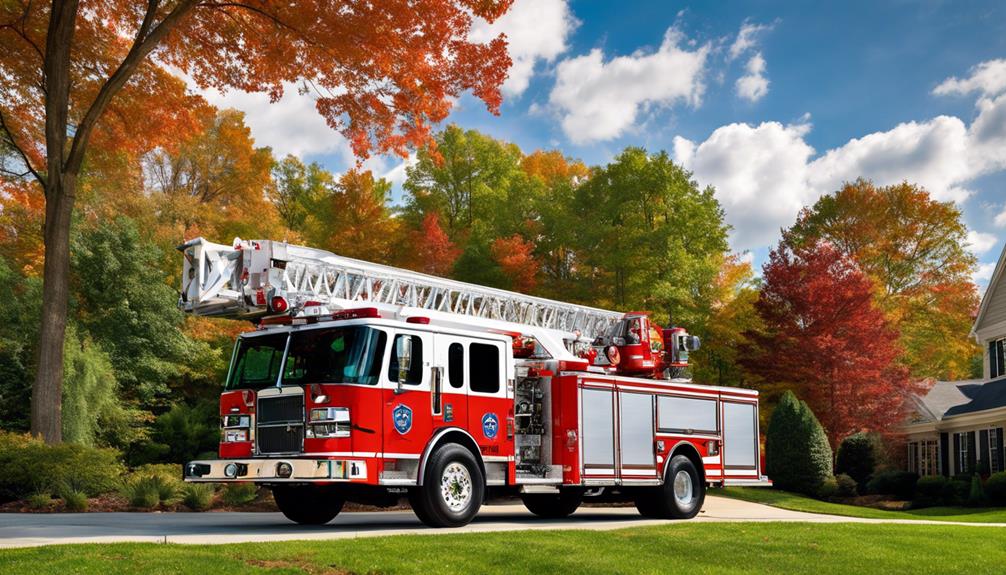When you think about fire protection in Prince William County, VA, it's essential to consider the role of the Fire Protection Contractor Bond. This bond isn't just a formality; it's a safeguard that ensures contractors adhere to local regulations, ultimately protecting both public safety and property owners' investments. If you're a contractor or a consumer in this field, understanding the nuances of this bond could significantly impact your experience. What are the specific requirements and benefits tied to it? The answer might surprise you and could influence your next steps.
What Is a Fire Protection Contractor Bond?

A fire protection contractor bond is a type of surety bond that guarantees a contractor will comply with local regulations and standards in fire protection work. This bond serves as a financial safety net, ensuring that you, as a property owner or client, have a recourse if the contractor fails to meet their obligations.
When you hire a contractor, you want assurance that they'll perform their duties responsibly and according to the law. The bond is designed to protect not just you, but also the public and the integrity of the fire protection industry. It holds the contractor accountable for their actions, ensuring they follow the required codes and guidelines.
If a contractor doesn't fulfill their responsibilities, you can make a claim against the bond to recover any financial losses you might incur due to their negligence.
In essence, a fire protection contractor bond acts as a promise from the contractor that they'll adhere to the necessary standards while working on your project. It helps establish trust and confidence, enabling you to make informed decisions when hiring professionals for fire protection services.
Importance of the Bond
Understanding the importance of a fire protection contractor bond is crucial for anyone looking to hire a contractor for fire safety projects. This bond serves as a financial guarantee, ensuring that the contractor adheres to local laws and industry standards.
When you hire a bonded contractor, you're protecting yourself from potential financial losses that could arise from incomplete or subpar work. Additionally, a performance bond can provide you with assurance that your contractor will fulfill their obligations, ultimately safeguarding your investment in the project and performance bond security.
If the contractor fails to meet their obligations, the bond can cover damages, giving you peace of mind. It also signifies that the contractor has undergone a vetting process, demonstrating their competence and reliability. This can save you from hiring unqualified individuals who may jeopardize your safety.
Moreover, a bonded contractor is more likely to take their responsibilities seriously, as their reputation is on the line. You can feel more confident that they'll deliver quality work that meets safety regulations.
In essence, the bond not only protects you but also promotes accountability within the industry. By ensuring that your contractor holds a valid bond, you're making a smart investment in the safety and security of your property and its occupants.
Requirements in Prince William County

When hiring a fire protection contractor in Prince William County, it's important to know the specific requirements they must meet to operate legally.
First, the contractor should hold a valid license issued by the Virginia Department of Professional and Occupational Regulation. This license ensures they've met the necessary training and experience criteria.
In addition to licensing, contractors often need to secure Illinois Surety Bonds to demonstrate their financial responsibility and commitment to compliance.
Next, proof of insurance is mandatory. Contractors need to show they've liability insurance that covers any damages or injuries that may occur while working on your property. This protects you from potential financial loss.
Additionally, a surety bond is often required. This bond serves as a financial guarantee that the contractor will adhere to local regulations and complete the work as promised.
It's also crucial for contractors to follow the local building codes and standards set by the county. Compliance with these codes ensures the safety and effectiveness of fire protection systems.
Types of Fire Protection Bonds
Fire protection bonds come in several types, each serving a unique purpose in ensuring contractor accountability and compliance. The most common type is the performance bond, which guarantees that you'll complete your fire protection projects according to the agreed-upon specifications. If you fail to meet these standards, the bond can cover the costs of hiring another contractor to finish the job.
Additionally, these bonds are essential for businesses that participate in contracts requiring surety, as they help ensure project completion and payment to subcontractors various bond types available.
Another type is the payment bond. This one ensures that you pay your subcontractors and suppliers on time for the materials and services they provide. If you neglect to make these payments, the bond protects those parties, allowing them to seek compensation.
There's also the maintenance bond, which typically covers the repair or maintenance of fire protection systems for a specified period after project completion. This bond assures clients that you'll uphold system efficacy post-installation.
Lastly, some jurisdictions may require specific bonds like a license bond, which guarantees compliance with local regulations.
Understanding these types of fire protection bonds helps you choose the right one for your business needs, ensuring you meet legal requirements and build trust with your clients.
Benefits for Contractors

Choosing the right fire protection bonds not only meets legal requirements but also offers significant benefits for contractors.
First, having a bond enhances your credibility. Clients tend to trust bonded contractors more, knowing you've had to meet specific standards and regulations. This trust can lead to more contracts and a stronger reputation in the industry.
Additionally, bonds can help you stand out in a competitive market. When potential clients see you're bonded, they're more likely to choose you over unbonded competitors. This can increase your chances of landing projects, ultimately boosting your income.
Moreover, fire protection bonds provide an added layer of security. In the event of a dispute or claim, the bond acts as a financial safety net, protecting both you and your clients.
This assurance can lead to smoother project execution and reduced stress.
Benefits for Consumers
Consumers benefit significantly from hiring bonded fire protection contractors. When you choose a bonded contractor, you're ensuring a level of protection and accountability that non-bonded contractors may not provide. If the contractor fails to meet their obligations or delivers subpar work, you have recourse through the bond. This means you could recover losses if the contractor doesn't fulfill their contractual duties.
Additionally, bonded contractors often have to meet strict licensing and insurance requirements, which can give you confidence in their qualifications. You can rest easy knowing they've been vetted and adhere to industry standards. A bonded contractor is also more likely to prioritize customer satisfaction, as their reputation directly impacts their ability to secure future contracts.
Furthermore, hiring a bonded contractor can lead to peace of mind, knowing that you're protected against potential legal issues or financial losses. In the event of disputes, the bond serves as a financial safety net.
Ultimately, by choosing a bonded fire protection contractor, you're making a smart investment in the safety and security of your property and loved ones. This choice helps ensure that your fire protection needs are met with professionalism and integrity.
How to Obtain a Bond

To obtain a bond for fire protection contracting, you'll first need to gather the necessary documentation and meet specific requirements set by the bonding company.
Start by preparing your business information, including your legal entity name, business address, and contact details. You'll also need to provide proof of your experience in fire protection services, which may include references or a portfolio of previous projects.
Next, gather financial statements that demonstrate your company's stability and creditworthiness. Many bonding companies will require personal and business credit checks, so be prepared to share your financial history.
Additionally, you may need to submit a completed application along with a description of the work you'll be doing.
Once you've compiled all the required documents, reach out to a bonding agent who specializes in fire protection contractor bonds. They'll guide you through the process, help you understand the terms, and facilitate communication with the bonding company.
After reviewing your application and documents, the bonding company will assess your eligibility. If approved, you'll receive your bond, allowing you to legally perform fire protection contracting in Prince William County, VA.
Costs Associated With Bonding
When considering the costs associated with bonding, you'll find that several factors influence the overall price. First, the bond amount required by the local government plays a significant role. Higher bond amounts typically lead to increased costs.
Additionally, your credit score is crucial; a higher score often results in lower premiums, while a lower score could raise your costs significantly.
Another factor is the type of bond you need. Different bonds, such as performance bonds or payment bonds, may have varying rates. The specific requirements set by Prince William County can also affect pricing, as some jurisdictions have unique stipulations that may influence costs.
Moreover, the duration of the bond matters. A bond that covers a longer period might result in higher fees. It's also essential to consider the underwriting process; some sureties may charge additional fees for processing your application.
Lastly, market conditions can impact bond prices, as they fluctuate based on demand and competition among bonding companies. By understanding these factors, you'll be better prepared to budget for the costs associated with obtaining your fire protection contractor bond.
Common Challenges and Solutions

Navigating the complexities of obtaining a fire protection contractor bond can present several challenges. One common hurdle is understanding the specific requirements mandated by local authorities. You might find that regulations vary widely, and it's crucial to research Prince William County's specific guidelines to ensure compliance.
Another challenge is the financial aspect. Bonding companies often require a solid credit history and financial stability, which might be daunting if you're just starting out. To overcome this, consider improving your credit score or presenting a comprehensive financial portfolio to lenders.
Additionally, the paperwork involved can be overwhelming. You'll need to gather documentation, fill out applications, and sometimes submit additional information. To simplify this process, create a checklist of required documents and set deadlines for each step.
Lastly, time constraints can add to the stress. If you're on a tight schedule, you should reach out to bonding professionals who can expedite the process and provide guidance.
Conclusion
In conclusion, securing a Fire Protection Contractor Bond in Prince William County is vital for both contractors and consumers. It not only ensures compliance with local regulations but also builds trust and credibility in the industry. By understanding the requirements and benefits, you can navigate the bonding process effectively. Whether you're a contractor looking to enhance your reputation or a consumer seeking protection, this bond plays a crucial role in promoting safety and accountability in fire protection services.


